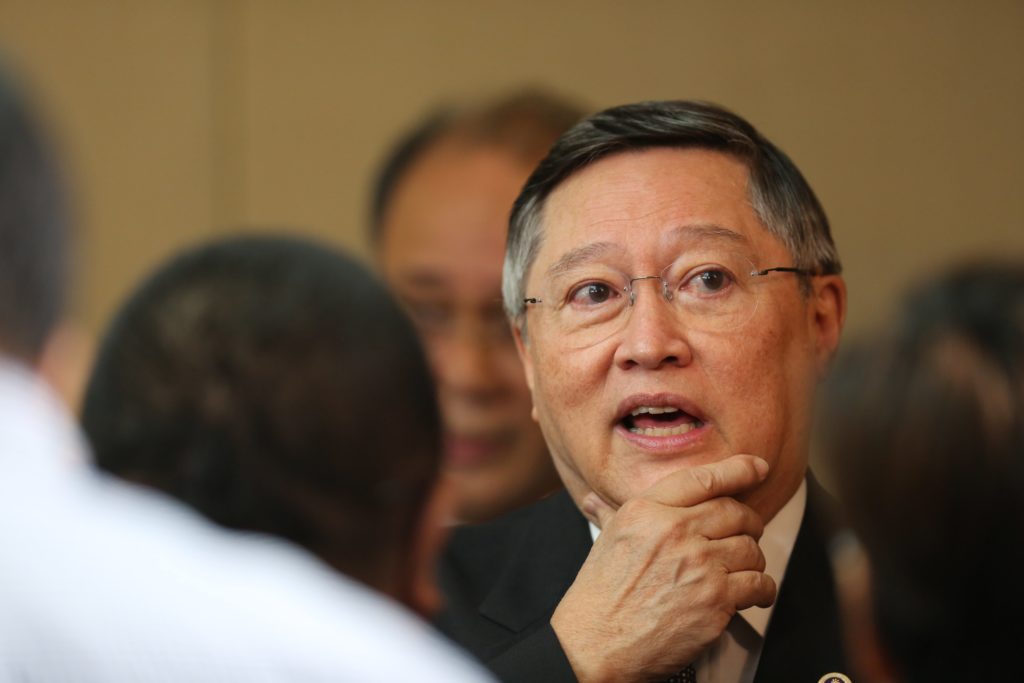Dominguez: 4Ps to help PH achieve poverty reduction goal

Manila, Philippines — With the Pantawid Pamilyang Pilipino Program (4Ps) institutionalized and enjoying additional funding, the Duterte government’s goal to significantly reduce poverty by 2022 is within reach, the administration’s chief economic manager said Thursday.
“The entire economic program of President Duterte has the ultimate goal of bringing down our poverty incidence from 27.6 percent in the first half of 2015 to just 14 percent by the end of the President’s term in 2022, expanding economic inclusion, and making real the dream of a comfortable life for every Filipino. We will tirelessly work towards the full realization of this goal,” Finance Secretary Carlos G. Dominguez III said in a speech after the ceremonial signing of the $300-million loan covering additional financing for the 4Ps.
In June, the World Bank approved the fresh loan, which will benefit 8.7 million Filipino children from 4.2 million families in the next two years.
Given an estimated yearly budget of about $1.7 billion for the 4Ps, the new World Bank financing will account for 9 percent of the cost needed until June 2022.
Since 2010 to date, the World Bank already shelled out a total of $1.26 billion in financial support for the 4Ps, Dominguez noted.
“The additional financing will continue to support the delivery of conditional cash transfers to millions of beneficiaries. It will also further improve the project’s implementation performance; monitoring and evaluation procedures; and upgrade key dimensions of the 4Ps’ program management,” Dominguez said.
“More importantly, the additional support will help boost early childhood development and fight malnutrition among 8.7 million children from the 4.2 million families currently benefitting from the 4Ps program,” Dominguez added.
Last April, President Rodrigo Duterte signed into law Republic Act No. 11310, which institutionalized the 4Ps while also providing more cash subsidies to its beneficiaries.
“The conditional cash transfer program is an indispensable component of the more comprehensive effort to combat cross-generational poverty. It is ultimately an investment in the next generation of Filipinos, who need to be ready to reap the benefits of our fast-approaching demographic dividend,” according to Dominguez.
For the part of the World Bank, its country director for Brunei, Malaysia, the Philippines and Thailand Mara K. Warwick said in a separate speech that the government’s cash transfer programs were “the second most significant contributor to poverty reduction in the Philippines after individuals’ wage earnings from non-agricultural activities,” citing a World Bank study.
“Through our partnership with DSWD [the Department of Social Welfare and Development], the World Bank remains committed to continuing to provide technical support to the 4Ps program together with other development partners,” Warwick said.
A recent World Bank report hailed the 4Ps as a successful program that reduced poverty and income inequality in the Philippines during its 12 years of implementation thus far, hence should be emulated by other development programs in the country.